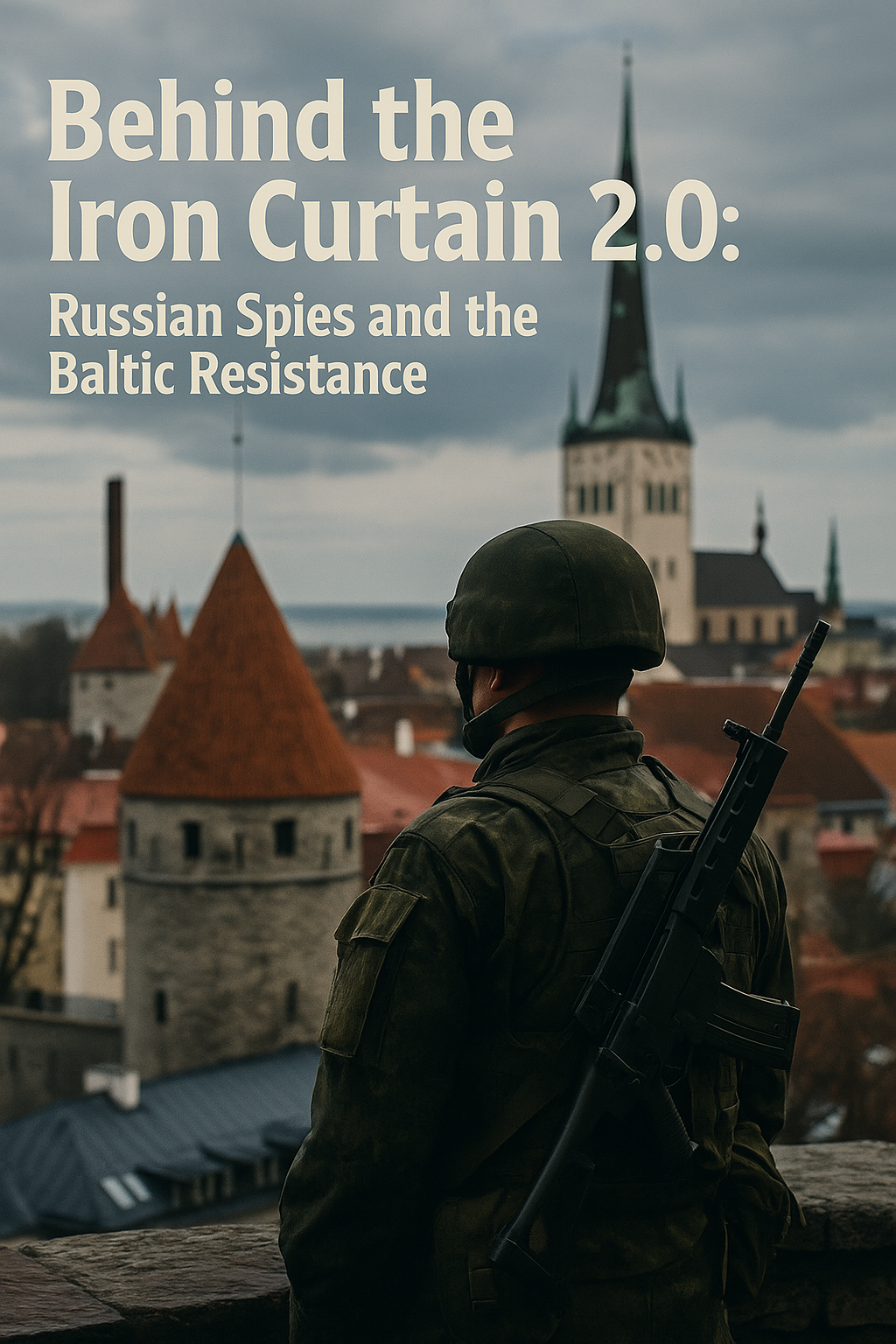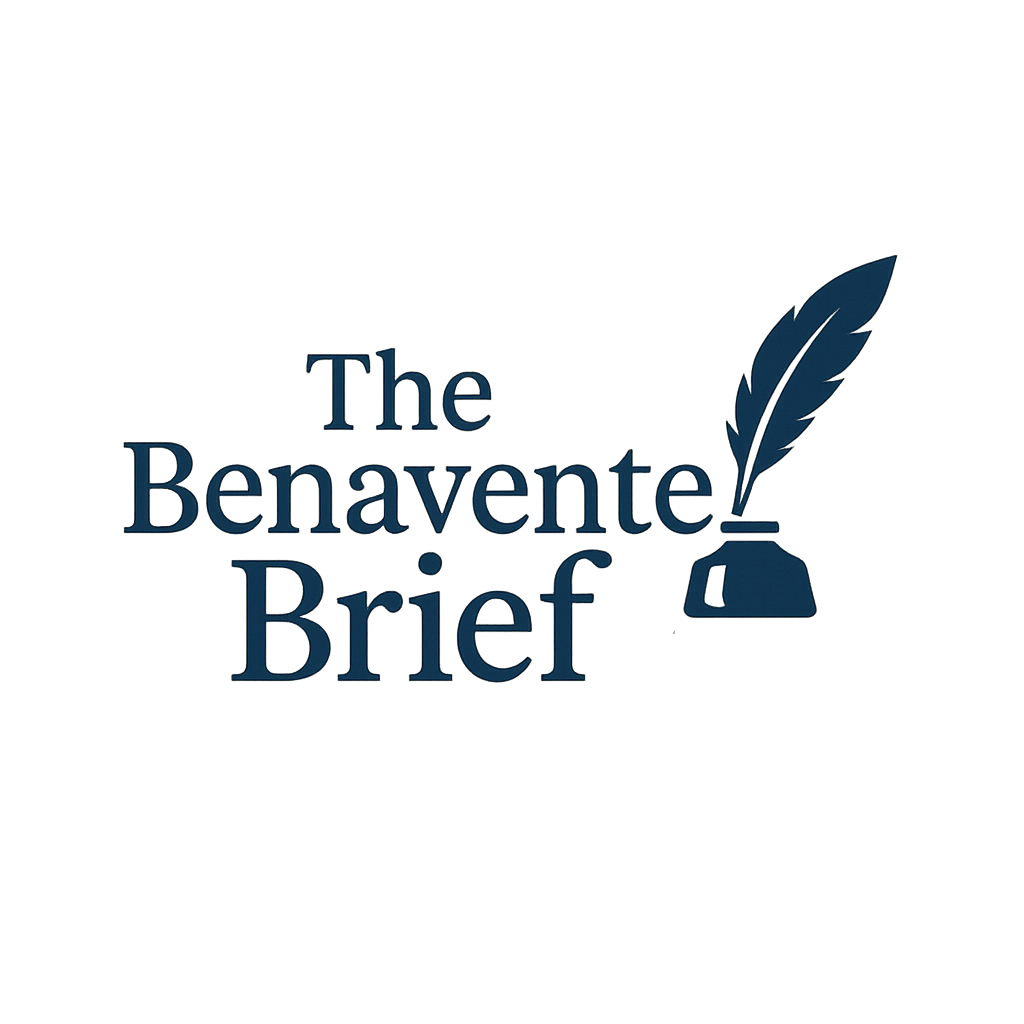Behind the Iron Curtain 2.0: Russian Spies and the Baltic Resistance
Estonia has prosecuted more Russian spies than any other EU or NATO country. -Rafael Benavente

Title: Spy Games at NATO's Edge: Estonia's Battle Against Russian Subversion
In July 2025, Estonia once again found itself at the center of geopolitical intrigue. A Russian citizen, Pavel Kapustin, was sentenced to over six years in prison for providing intelligence to Moscow’s FSB. The conviction is part of a growing trend: Estonia has prosecuted more Russian spies than any other EU or NATO country. For a small Baltic state with a population just over a million, this is no accident. It’s strategy.
This case, and others like it, show the stakes for countries on the eastern edge of NATO. Since Russia’s full-scale invasion of Ukraine in 2022, nations like Estonia, Latvia, Lithuania, and Poland have become not only military frontlines but ideological ones as well.
Estonia: From Soviet Past to NATO Vanguard
Estonia, once a republic of the Soviet Union, broke free in 1991. Since then, it has been one of Europe’s most tech-savvy and security-conscious nations. It joined NATO and the EU in 2004, implemented e-governance at lightning speed, and took cyberwarfare seriously long before most of the West did. The memory of Russian control—and the threat of its return—remains vivid.
The Kapustin case is just the latest chapter in a well-documented effort by Moscow to manipulate Russian-speaking populations in the Baltics. Estonia’s national security agency warns that the Kremlin routinely attempts to recruit locals as informants, particularly among its sizable Russian-speaking minority. Tallinn has gone as far as to discourage travel to Russia, warning of potential recruitment or coercion by Russian intelligence.
Hybrid Warfare Is the New Normal
Estonia's story is not isolated. Across NATO’s eastern front, the battle against Russian subversion is playing out not only with troops and tanks, but also through:
- Espionage and sabotage
- Cyberattacks on government infrastructure
- Disinformation campaigns targeting elections
- Economic and energy coercion
Lithuania, for example, has flagged Belarusian intelligence services for attempting to manipulate its large Belarusian diaspora. With thousands of Russian and Belarusian troops preparing for a joint military exercise on Lithuania’s doorstep in September, the pressure is mounting.
The Democratic Dilemma: Open Borders, Closed Eyes?
One of the paradoxes facing liberal democracies is how to protect freedom without becoming illiberal. Estonia has walked that tightrope by increasing surveillance and deterrence while maintaining its EU values. But it raises deeper questions:
- Can a democracy remain truly open when enemies exploit its openness?
- How should governments handle ethnic minorities who feel culturally or politically tied to foreign adversaries?
- Is it time for a NATO-wide counterintelligence framework?
These questions aren’t just theoretical. They shape how Europe and the West respond to authoritarian challenges now and into the future.
Lessons from the Frontline
Estonia is showing the world what 21st-century resilience looks like. It doesn’t just mean having missiles pointed east. It means:
- Educating citizens to spot fake news and disinformation
- Building up cybersecurity defenses
- Proactively identifying and neutralizing internal threats
- Tightening coordination with allies across NATO and the EU
Kapustin’s conviction is a warning shot—not just to Moscow, but to the rest of Europe: Stay alert. The Cold War may be over, but the espionage game never ended.
Final Thoughts: Espionage as a Mirror
Spying is often portrayed as shadowy and exotic, but at its core, it’s about exploiting weaknesses. What Estonia has demonstrated is that preparedness, transparency, and civic education are the strongest shields.
As the war in Ukraine drags on and tensions along Europe’s eastern flank escalate, nations like Estonia will remain critical test cases for how democracies defend themselves—not just with weapons, but with wisdom.
By Rafael Benavente
If you liked this article, you may also enjoy:
